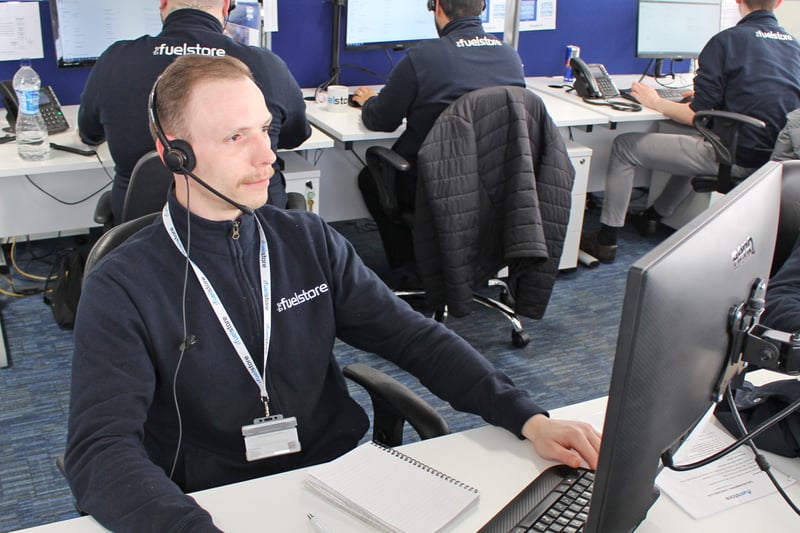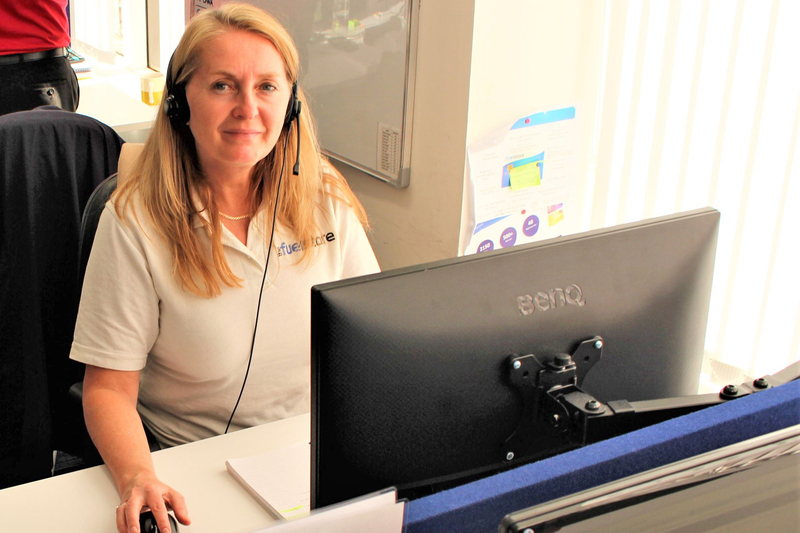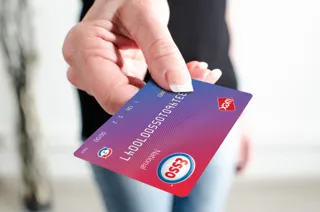Whenever fuel is mentioned in fleet circles, the conversation usually focuses on electrification and the upcoming ban on the sale of new petrol and diesel vehicles.
But this can overlook the ongoing importance of fossil fuels to the vast majority of fleets, with almost all company-owned vehicles still currently dependent on the oil-based products.
It is against this background that The Fuel Store, which was founded in 2016 by husband and wife Jamie and Mehma Bridgen (pictured), is pursuing a growth strategy that will see it double its customer base on a year-by-year basis.
It now has more than 30 members of staff and around 3,000 customers, with Jamie’s father – former Fleetcor UK managing director Peter Bridgen – taking an advisory role with the company.
This growth strategy has seen it expand its range of products as well as its coverage: in May it added the Esso Card to its network, increasing its reach to cover two-thirds of the UK’s fuel stations.
Combined with the Keyfuels network it already offered, its customers now have access to more than 6,500 fuel sites across the UK, including more than 1,000 Shell and 1,230 BP sites.
The offering will also help the company achieve its strategic objective of expanding into inner-city fuel sites.
“This has been on our radar for a while and we are excited to finally get it off the ground,” says Jamie.
“The clientele will be slightly different for the Esso Card as it’s more focused on inner-city, local regional operators whereas the Keyfuels product is more national and for heavy goods vehicles (HGVs).”
Traditionally, The Fuel Store has targeted small-to-medium enterprises (SMEs) which operate HGVs and light commercial vehicles (LCVs), and The Esso Card will support its vision by extending its reach into the car fleet market, he adds.
“The Esso Card takes us into a different space,” says Peter. “We are clearly focused on SME and that will continue, but The Fuel Store card is becoming more attractive to more types and sizes of fleets.
“The thing companies are looking for before anything else, I believe, and have been for a long time, is convenience.
“And convenience comes with what networks you offer: the first question I would ask as a driver of an HGV, van or car is ‘where can I fill up?’.
“The Esso Card takes us up to around 6,500 sites and if you consider that the total number of filling stations in the UK is about 8,400, we can offer really good coverage.”
Protection from fraud
The Fuel Store has also extended its products beyond solely fuel cards to increase its appeal to potential customers. It now offers FraudGuard, which is designed to keep customers protected from fraudulent activity on fuel cards, and last year it launched a telematics-based fleet management solution in partnership with Trakm8. The latter incorporates fuel spend management and data insights on both driver and vehicle performance.
“As with any sector, data is becoming the key to success,” says Jamie. “And for us, it was about how do we deliver that data in a meaningful way to our customers? How do we allow them to make better decisions?
“Telematics gives you access to so much data and it was about how we could pull together the fuel expense data with the telematics data to give customers the insights to really understand how their vehicles and drivers are performing. It also lets them see whether a vehicle needs a service or maintenance any time soon.”
Not all SMEs are as aware of telematics and the benefits the technology can have as large fleets are, he adds, so it has been important for The Fuel Store to educate its customers about it.
“It’s also about understanding what the customer’s requirements are because it’s wrong to throw data at someone which they probably won’t understand completely or, in a lot of cases, won’t need,” says Peter.
“It’s about matching their requirements with the data you have to help them concentrate on the areas that need improvements to make their fleet more efficient.”
The Fuel Store is looking at ways it can enhance its telematics offering through other complementary services, such as a maintenance solution.
It is also currently developing a “data product” which it hopes to launch later this year, as well as working on a partnership with an insurance company where it can provide details to its customers on what policies are available.
“We won’t be selling the insurance ourselves because we would have to be FCA-regulated, but we want to be able to offer a route to those solutions to our customers,” says Jamie.
“There are also other solutions, such as leasing, we’re looking to introduce.
“There are a few businesses out there that we could partner with that we already have good relationships with, so for us it is really looking at what solutions our customers require and we can provide them with, with one point of contact.”
Ready for electric switch
While fuel cards for petrol and diesel and associated products may be key to The Fuel Store’s immediate success, Jamie says the company is also working to be ready for the widespread shift to electric vehicles and the change this will have on the services it offers.
“It’s key to be agile,” he adds. “Our aim is to be prepared so when our customers transition from traditional fuels to new fuels, we are able to facilitate that.
“We are not a fuel card company, we are a fuel card reseller. We’re not a creator of these big solutions, but we are a solutions reseller and the idea is always to make those solutions better with the service that we provide to our customers.”
Bouncing back post-lockdown
The Covid-19 pandemic was a potential spanner in the works of The Fuel Store’s growth plans and, after the first week of the initial lockdown last year, its customers’ fuel spend dropped 50%.
“If you talk to any other business across the fuel card sector, they’ll tell you the same story or worse,” says Peter Bridgen.
“But within a week or so of the end of the first lockdown, the spend went back to normal and we are now significantly above where we were before the first lockdown.”
Jamie adds: “Everybody has been hit by Covid. We weren’t used to home working at the time, but we adjusted to that within three days and everybody was able to work at home.
“Last year gave us the opportunity to think and plan a lot. It changed customer behaviours as well and now they’re looking at how they boost off from this lockdown. How do they focus and grow the business back to where it should be?
“The need for convenience is even more prominent now because businesses are looking at ‘we’ve got a number of issues to solve, we don’t really want fuel expenditure to be one of those issues’.”






















Login to comment
Comments
No comments have been made yet.